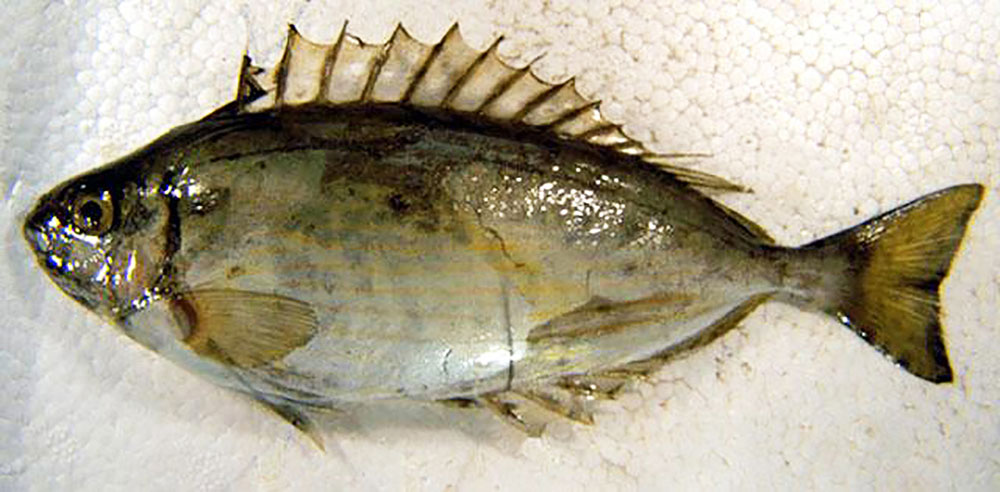Alien marine species that have entered the Mediterranean Sea and spread into Greek seas are threatening the presence of local biodiversity.
However, at the same time, “strange fish” are already appearing on store shelves and on consumer plates, since their nutritional value is high. It is estimated that more than 1000 alien fish speciesand in Greece more than 240 have been registered. After all, our country, due to its geographical position and the conditions prevailing in its seas, is at a key point for the further spread of alien species entering from the Red Sea.
Wild flounder, German lionfish and sardine: these are four species that are showing an increasingly dynamic distribution in our seas and that is why they have become the main focus of the three-year program “4Alien”successfully completed under the coordination of the Hellenic Center for Marine Research (Ελληνικού Κέντρου Θαλάσσιων Ερευνών, ΕΛΚΕΘΕ) in collaboration with the Aristotle University of Thessaloniki (AUTH) and WWF Greece.
According to scientists, these four species are now firmly established in Greek seas, especially in the south of the country, where the waters are warmer. However, they have the potential to further spread to other marine areas of the country as constantly changing climatic and environmental conditions favor their movement. In fact, this is favored by rising sea temperatures, overfishing of native species (leading to declines in their populations), and general degradation of the marine environment as a result of other anthropogenic activities.
The consequences caused by these invasive alien fish species concern, as noted by program scientists, both the marine environment and fishermen: on the one hand, they compete with native Mediterranean species, on the other hand, they often cause damage to fishing gear. At the same time, according to the program, The nutritional value of these four species is excellent and has some very interesting properties, they have now been proven to be:
- rich source of protein of excellent quality, comparable to meat,
- have low fat content,
- have high levels of Omega-3 fats, known for their beneficial properties for human cardiovascular health.
Besides four specific types are very rich in two of the most valuable Omega-3 polyunsaturated fats, and in ideal ratios. The results of the study, conducted specifically on the wild salp fish (αγριόσαλπα, hermanos), made a positive impression on the researchers, as it turned out that the fish is rich in a particular Omega-6 fatty acid, arachidonic acid, which is a key structural characteristic of nerve cells and is essential for brain health , as well as for the good condition of our immune system.
Reference. The αγριόσαλπα fish is a species of ray-finned fish that belongs to the Siganidae family. They have a compressed body with a row of poisonous spines on the dorsal fin. It is usually greenish-olive or dark brown in color with a striped pattern. The fish reaches a maximum length of 30 centimeters, but more often 20 centimeters, feeds on algae and herbs. It is native to the western Indian Ocean and has spread to the Mediterranean Sea, migrating through the Suez Canal. Considered edible, but not popular among the Greeks.

“Alien species themselves are a big problem. In fact, we are trying to control the growth of these populations by finding positive aspects in their presence. By consuming or using these alien species, an attempt is made to facilitate the ecosystem,” says ichthyologist biologist, researcher at the Institute of Marine Biological Resources and Inland Waters ΕΛΚΕΘΕ, Paraskevi Karali. Foreign fish species, she said, have arrived in the Greek seas, so “let’s include them in our diet.” Using the 4Alien program, it was confirmed that the species studied were tasty and healthy.
By eating them we help in many ways: Increase fishermen’s income, reduce pressure on local fish stocks, deal with this environmental threat. In fact, the expert adds, The European program is expected to launch on January 1, which will identify other alien fish species found in the Mediterranean today. Scientists will figure out how to deal with all this and direct it to the benefit of the country’s economy. As you know, marine life can be used in the cosmetics industry, for medical purposes, and also as fish food.







More Stories
Tariffs for "green electricity": detailed prices by suppliers for May
Child Benefit: Find out when the application platform will be temporarily closed
Greek Police: "Pyrotechnics for Easter are not toys for you"